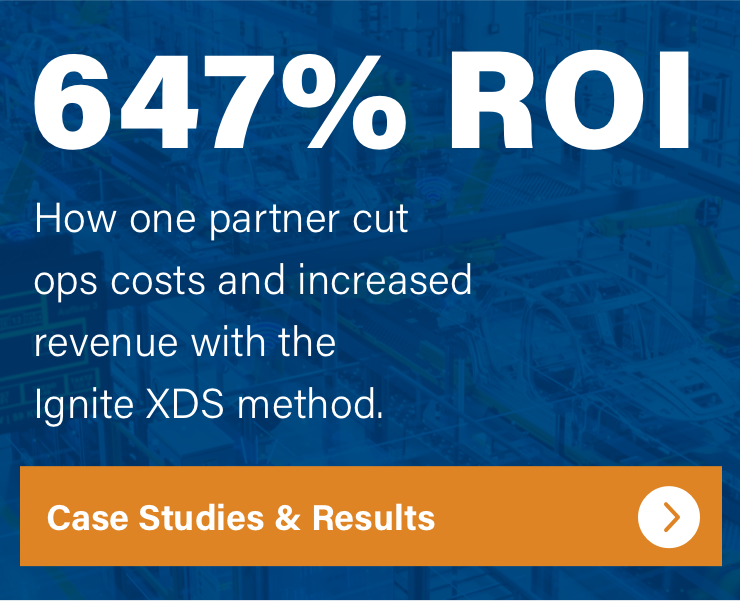
What Is an LLM? How Large Language Models Are Reshaping Search, Marketing, and Business Strategy
Search is changing. Quietly, and quickly.
And if your business is still optimizing content for yesterday's Google algorithm, you’re not just behind—you’re becoming invisible.
We’re at the beginning of a fundamental shift in how people search for information and how businesses get found. The cause? Large Language Models (LLMs). If you’ve heard of ChatGPT you’ve seen a glimpse of what’s ahead. These AI tools don’t just index content—they interpret, summarize, recommend, and respond. And they’re not just changing how search works; they’re rewriting the rules of digital visibility altogether.
So, let’s dig in. What exactly is an LLM, why should you care, and what do you need to change if you want to compete in a world where search is powered by AI?
(If you've been sitting on AI-related questions you'd rather talk through with a human versus an LLM, we're here—book a Fit Call and let's talk.)
What Is an LLM?
An LLM, short for Large Language Model, is a type of artificial intelligence trained on massive amounts of text data. It can understand, generate, and respond to human language in ways that feel natural and intuitive.
Think of it as a system that reads the internet (or large parts of it), learns how language works, and uses that knowledge to answer questions, generate content, or carry on a conversation.
LLMs are already integrated into tools like:
- ChatGPT (OpenAI)
- Gemini (Google)
- Claude (Anthropic)
- Microsoft Copilot (powered by OpenAI)
These tools aren’t just novelties. They are quickly becoming the new interface for how people find and consume information. And that has massive implications for marketing, SEO, and your business strategy as a whole.
How LLMs Are Changing the Way People Search
The traditional search experience was built around keywords. You typed a phrase into Google, got a list of links, clicked a few, and found your answer somewhere in the mix. But LLM-powered tools don’t serve up ten blue links. They read everything for you and give you a synthesized response, often without the user ever clicking a website.
This shift means:
- People are asking longer, more conversational questions.
- They expect direct, summarized answers.
- They make decisions faster because the context is already provided.
Your website’s job isn’t just to rank. It’s to provide clear, structured, expert-backed answers that LLMs can interpret and elevate.
If your business content isn’t being used to train or inform LLMs, you’re disappearing from the new discovery funnel.
What This Means for Businesses and Marketers
First, let’s get one thing clear: SEO is not dead. But it is evolving—and fast.
The old playbook of stuffing keywords, building backlinks, and publishing generic blog content isn’t going to cut it anymore.
Here’s what’s changing (and what B2B companies need to know):
1. Search Results Are Being Skipped
Users aren’t even seeing the SERP (Search Engine Results Page) in some cases. Tools like ChatGPT or Perplexity provide an answer right in the interface. That means businesses need to shift from writing to rank to writing to be referenced by the LLM.
2. Authority Is Being Recalculated
LLMs prioritize content that is clear, reputable, and structured. They’re not looking for tricks, they’re looking for trustworthy, consistent expertise. That means your brand voice, your content quality, and your subject matter authority matter more than ever.
3. Content Needs to Educate, Not Just Promote
Thin, salesy, or surface-level content won’t make the cut. LLMs elevate content that provides depth, clarity, and genuine expertise. If you’re not helping someone understand their problem and how to solve it, your content will get bypassed.
How to Optimize for LLMs (and Still Win with Humans)
Here’s the good news: the steps you take to make your content friendly to LLMs also make it more valuable to real people. Here’s where to start:
1. Create Content That Answers Real Questions
LLMs love content that mimics Q&A structures. Think about what your audience is really asking—not just what they’re typing into Google, but what they ask your sales team, your support staff, and even your competitors.
2. Structure Your Content Clearly
Use headers, bullet points, summaries, and consistent formatting. Structured content is easier for LLMs to parse and easier for readers to scan.
3. Build Topic Clusters
Don’t write isolated blog posts. Create a network of content around core themes. This builds authority, helps LLMs understand your expertise, and keeps users engaged.
4. Cite Sources and Demonstrate Expertise
LLMs reference content they trust. Back up claims with research. Feature quotes from experts. Show your audience (and the models) that your business knows its stuff.
5. Refresh and Re-optimize
LLMs evolve. What works today may not work tomorrow. Update your content regularly to reflect current insights, tools, and language usage. Fresh content has a better shot at being included in LLM training datasets or live response engines.
What Happens If You Ignore This Shift
If your content strategy is built for yesterday’s Google, you’re going to feel the consequences. Traffic will decline. Leads will drop. Competitors who embrace LLM-aware strategies will take the top of the funnel.
Most critically, your business will lose visibility not because you’re doing something wrong, but because you’re not doing anything different.
In a market where digital visibility drives revenue, that’s a risk you can’t afford.
How Ignite XDS Helps You Win in an AI-Powered Search Landscape
We don’t just create content, we build systems designed to scale, convert, and position your business as a leader in a rapidly evolving marketplace.
At Ignite XDS, we align marketing with operations to create end-to-end strategies that deliver real growth for our partners. And that means making sure your content isn’t just optimized for search engines but built to perform in the age of LLMs.
We help businesses:
- Audit and evolve their content for LLM visibility
- Structure knowledge into searchable, referenceable formats
- Define a modern SEO strategy that works today and tomorrow
Search is changing. If your strategy isn’t, let’s fix that.
Where should you implement AI for the greatest return in your business?
Find out specifically where and how AI can transform your business, and give you an edge against your competitors. We'll provide you with individualized recommendations tailored to your unique market position – fast & 100% complimentary.
Get Your Unique AI Recommendations + Bonus Competitive Analysis
*By providing your contact information, you give Ignite XDS authorization to contact you via email, text, phone, or other messaging technology, to discuss this assessment, additional offerings, and services.


